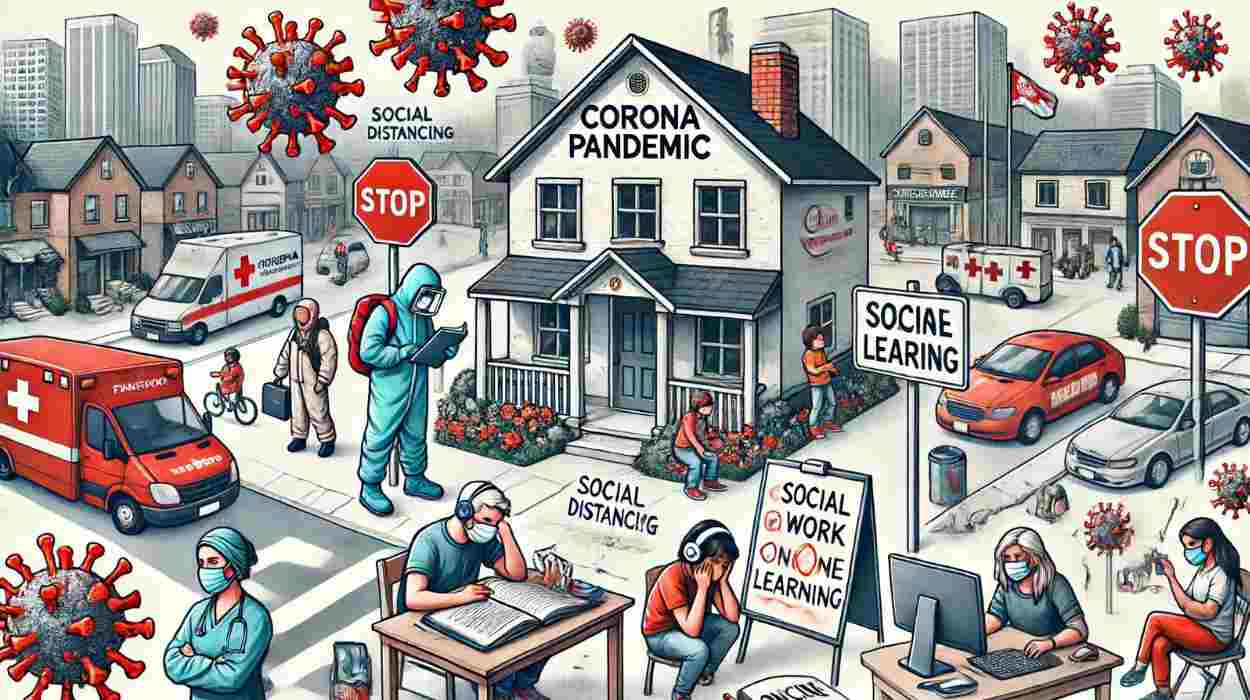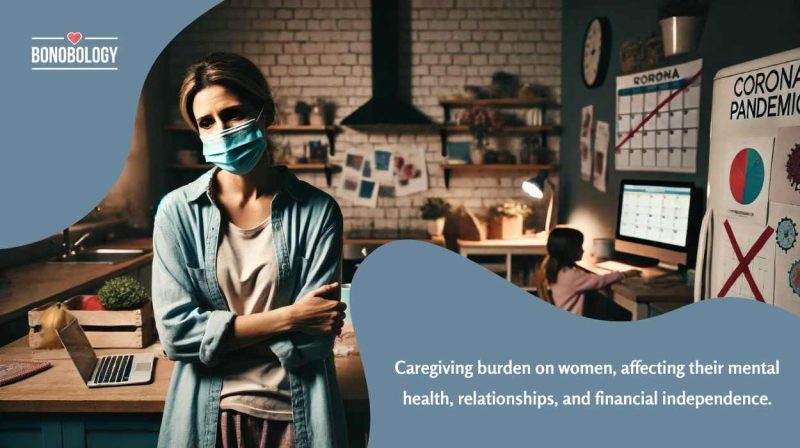COVID-19 has amplified the skewed domestic care responsibilities which unfortunately fall largely on women. From caring for the daily needs of family members young and old, managing healthcare, overseeing the education of children which is now online, to trying to keep up with their careers, women are stressed and overburdened. The impact of the pandemic on women has been such that, on most days, they may not have any time to decompress or spend on self-care.
This is affecting relationships and mental well-being not only of the woman but also of her family. A recent article indicated that there is an increase in divorce petitions being filed in the Family Court and averages 22 petitions daily. Another article quoted Lawrato receiving 60% of all daily calls related to divorce matters and Lawyered receiving a 20% spike in divorce cases since the lockdown.
Some of the reasons quoted by experts for the divorce petitions are the rising standards of expectations from each other, lack of time for the partner, and lack of communication between the couple. Of course, these inequities are not a recent problem, only occurring during COVID-19. The 2019 NSS time use report indicated that women in India spent about five hours a day on unpaid domestic work which is thrice as much time as men.
Unpaid domestic care is an important issue because it disproportionately affects women. It furthers gender stereotypes and norms that expect women to carry out these duties, which can be largely done by a third party. It perpetuates patriarchal and caste inequalities and infringes on the rights of women.
As it is, women’s participation in the formal workforce is decreasing and this could be in part due to their care responsibilities at home. The World Economic Forum’s Gender Gap Report 2021 places India at 140th rank amongst 156 countries. The report said, “Among the drivers of this decline is a decrease in women’s labor force participation rate, which fell from 24.8%to 22.3%.” Even so, the reality of how COVID-19 affected gender roles, making the dynamics of sharing household responsibilities even more skewed cannot be overlooked.
COVID Impact On Women and Their Relationships
Table of Contents
The impact of COVID-19 on women’s health, both physical and mental, can have far-reaching repercussions not just on them as individuals but also on entire family units. How does all this translate to a woman’s place in her family and her relationship with her spouse? Let’s try to understand:

1. Relationship
If one spends 5 hours on average on domestic care work over and above one’s full-time job, there is very little time available for having a fulfilling relationship, including a sex life. The stress might result in a person always being upset, short-tempered and distant with their partner, creating tension in their relationship. The impact of the pandemic on women can well extend to their most intimate relationships.
Related Reading: Giving Too Much In A Relationship? How Much To Give Of Yourself
2. Mental Well-Being and Lack of Self-Esteem
There is very little time for the primary caregiver (most often the woman in the house) to invest in self-care, extracurricular activities, higher education, or hobbies. There is little or no time for socializing and often one’s networks are restricted to their children’s ecosystem. All of which can have a severe impact on women’s mental health.
Over time, the person might feel disconnected from the rest of society and might also feel disconnected from her professional circles as she is constantly thinking about her care responsibilities. She might turn down opportunities, networking events and even promotions for lack of bandwidth and time to do full justice to their professional roles.
3. Lack of Financial Independence
Another significant COVID-19 impact on working mothers has been that without help and support from their spouses or other members of the family, they may find it harder to strike a work-life balance.
If a woman decides it’s too much to balance everything, she may leave her job but then she stops earning a monthly salary. Over time, this leads to a dependency on her spouse for finances, and thereby limits her options, especially if she is in an abusive relationship.

How To Mitigate the Impact of the Pandemic on Women
We must no longer turn a blind eye to the way COVID-19 affected gender roles, making an already lopsided equation even more stilted. The focus now needs to shift to understanding how one can maintain healthy relationships and a gender-equal household. Here are a few ways to mitigate the overwhelming COVID impact on women:
1. Maintain Open Communications
It is extremely important in any relationship to be transparent, honest, and have an open communication channel. Learn to identify your emotions, and the reasons for them and be able to communicate clearly why you are feeling the way you are.
Learn to respect and appreciate the other person’s emotions and feelings and don’t take things personally. Staying silent, and letting it pass will not solve the issue. It only makes it worse because you bottle up your emotions till they reach volcanic proportions and burst out.
2. Establish Boundaries and Learn To Negotiate
The impact on women’s mental health is no trivial matter, and women themselves have to take proactive measures to counter it. One way to do that is to have frank and open discussions on expectations, dreams, goals, and aspirations, early on in the relationship.
Set boundaries on tasks and also learn to negotiate with your partner. Socio-cultural norms and unconscious bias that place undue expectations on either partner need to be challenged.
3. Share the Workload
Cooking is a life skill and no one was born with inherent knowledge. Same with rearing children and caring for sick family members and old parents. Everyone should pitch in.
Children should be taught these skills at an early age, irrespective of gender. If the spouses have demanding jobs, one option might be to invest in third-party services for cooking, cleaning, and child/elder care. This can go a long way in reducing the overbearing COVID-19 impact on working mothers.
4. Finance the Domestic Care Work
There must be a cost established for domestic care work and if one spouse’s time is solely dedicated to it, then due acknowledgment should be given, and money set aside as compensation. In addition, time off should also be factored in so that the person gets some respite. Care work can be exhausting, and primary caregivers need breathing space too.
Related Reading: United by marriage…divided by gender-roles and responsibilities?
5. Model Gender Equality at Home
It is a good practice for both parents to share the care work, respect each other, and be role models for their children. As a start, paternal leave should be taken wherever it is an option.
It is important to invest in relationships and create a culture within the home where every person is loved, respected, and valued. The work of caring for others should not be a burden but should come from a place of love.
Your contribution does not constitute a charitable donation. It will allow Bonobology to continue bringing you new and up-to-date information in our pursuit of helping anyone in the world to learn how to do anything.






















